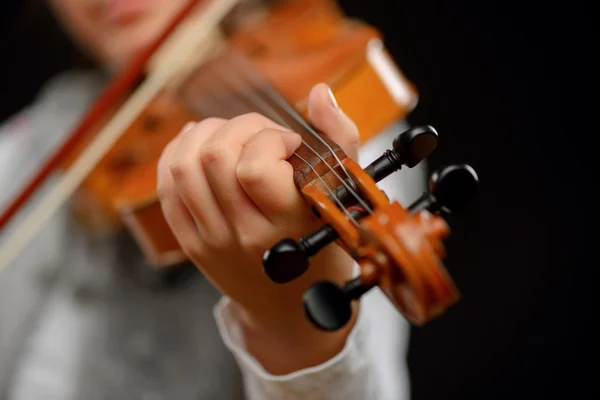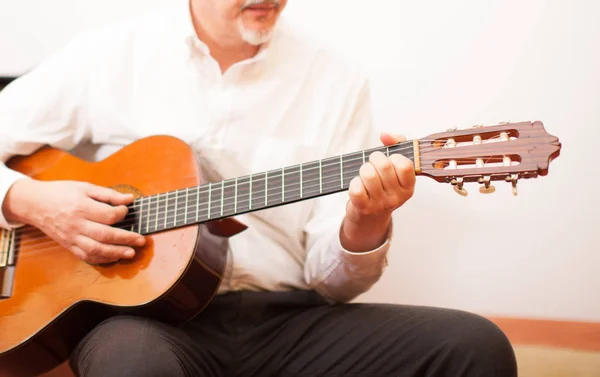Cognitive Function: Practicing Music May Protect Aging Brain – Playing music or choral singing throughout one’s adult life is associated with better cognitive health as we age, says a new study from the University of Exeter in the United Kingdom.
As we age, maintaining cognitive health becomes increasingly important. Memory, focus, and decision-making abilities are all crucial for navigating our daily lives with independence and vitality. While traditional methods like staying mentally active and physically fit play a vital role, recent research is exploring the exciting potential of music participation as a complementary approach to promoting brain health. The study is published in the International Journal of Geriatric PsychiatryTrusted Source.

A Symphony of Findings: New Study Unveils Music’s Impact
A groundbreaking study published in the International Journal of Geriatric Psychiatry sheds light on the potential link between music engagement and cognitive function. Led by researchers at the University of Exeter, the study analyzed data from over 1,000 individuals aged 40 and above, exploring the impact of playing musical instruments and singing in choirs on their cognitive abilities.
The results were encouraging, painting a picture of music as a potential conductor for cognitive well-being:
- Sharpening the Memory Orchestra: Adults who played musical instruments, particularly the piano, displayed stronger working memory, which is essential for holding and manipulating information.
- Conducting Executive Function: Playing instruments was also associated with enhanced executive function, a critical set of skills for planning, problem-solving, and multitasking.
- Singing in Harmony: While less conclusive, the study found a potential link between singing in a choir and improved executive function. It’s important to note that the social aspects of choir participation might also play a role in this association.
These findings add to a growing body of research suggesting that music is more than just a source of enjoyment; it may be a powerful tool for keeping our minds sharp as we age.
The Maestro Within: Understanding the Mechanisms
The study is an analysis of data from the larger PROTECT study, looking at people aged 40 or older. It is a collaboration with King’s College London, and has been underway for a decade. So, how does music influence our cognitive function? Several potential mechanisms are at play:
- Brain Fitness Boot Camp: Playing an instrument is a cognitively demanding activity. It requires coordinating multiple brain regions simultaneously, from reading music and translating it to finger movements to controlling pitch and rhythm. This constant mental workout may strengthen neural pathways and enhance cognitive flexibility.
- Neuroplasticity: Building Neural Orchestras: Music may promote neuroplasticity, the brain’s ability to create new neural connections and adapt to new experiences. Studies have shown that musical training can increase gray matter volume in brain regions associated with memory, learning, and auditory processing.
- Stress-Busting Symphony: Music can be a powerful stress reliever. Listening to calming melodies or actively participating in music making can reduce stress hormones like cortisol, which can have detrimental effects on brain health. By lowering stress levels, music may create a more favorable environment for cognitive function.
A Lifelong Harmony: The Power of Continued Musicality
The study also highlighted the importance of lifelong musical engagement. Individuals who continued playing instruments or singing throughout their lives displayed even stronger cognitive benefits compared to those who started later in life. This suggests that incorporating music into your life early on and maintaining it over time might be a valuable strategy for building cognitive resilience.
The concept of cognitive reserve helps explain this benefit. Cognitive reserve refers to the brain’s ability to withstand damage before experiencing cognitive decline. Think of it like a bank account for your brain – the more “cognitive deposits” you make through activities like music participation, the better equipped your brain is to handle age-related changes.
Music and Dementia: A Beacon of Hope
Dementia affects millions of individuals worldwide, and the search for effective interventions remains a top priority. While music cannot cure dementia, research suggests it can play a valuable role in managing its symptoms and improving quality of life.
- Mood Maestro: Music therapy has been shown to improve mood and reduce agitation in individuals with dementia. Familiar melodies can evoke positive memories and emotional responses, bringing joy and connection.
- Memory and Cognitive Spark: Engaging in musical activities like singing or playing simple instruments can stimulate cognitive function in individuals with dementia. Music can trigger memories, improve attention, and even facilitate communication.
- Social Harmony: Participating in choirs or music groups can provide valuable social interaction, combating isolation and loneliness, which are common challenges for individuals with dementia.
Numerous studies and anecdotes showcase the positive impact of music on individuals with dementia. For example, a study published in the Journal of Alzheimer’s Disease found that music therapy significantly improved cognitive function and reduced anxiety in individuals with Alzheimer’s disease.
Beyond the Notes: Limitations and Future Directions
While the potential of music for cognitive health is exciting, it’s important to acknowledge the limitations of the current research and avoid overexuberant conclusions.
Beyond Observation:
The study, like many exploring the link between music and cognition, is observational. This means it can identify associations, but cannot definitively prove that music participation directly causes cognitive benefits. Other factors, like individual lifestyles or pre-existing cognitive abilities, could also play a role.
Unveiling the “Why”:
The study also highlights the complexity of music’s impact. While it suggests links between various musical activities and cognitive function, it doesn’t delve into the “why” behind these associations. Is it the specific cognitive demands of playing an instrument? The social interaction of choir participation? Or a combination of factors? More research is needed to tease out the specific mechanisms at play.
Individual Variability:
It’s crucial to remember that individuals respond differently to music. What benefits one person might not have the same effect on another. Individual factors like musical aptitude, personal preferences, and overall health status can influence the impact of music participation.
Moving the Melody Forward:
Despite these limitations, the study adds valuable insights and underscores the need for further exploration. Future research directions could include:
- Longitudinal studies: Following individuals over time to track the impact of sustained music participation on cognitive function.
- Controlled trials: Testing the effectiveness of specific music interventions against control groups to establish causality.
- Exploring diverse populations: Investigating the impact of music on different age groups, ethnicities, and individuals with varying cognitive abilities and health conditions.
- Understanding the mechanisms: Delving deeper into the neurological and psychological mechanisms underpinning music’s influence on cognitive function.
By addressing these limitations and pursuing further research, we can unlock the full potential of music as a tool for promoting brain health and improving the lives of people of all ages.
Last Updated on February 18, 2025 by 247 News Around The World






